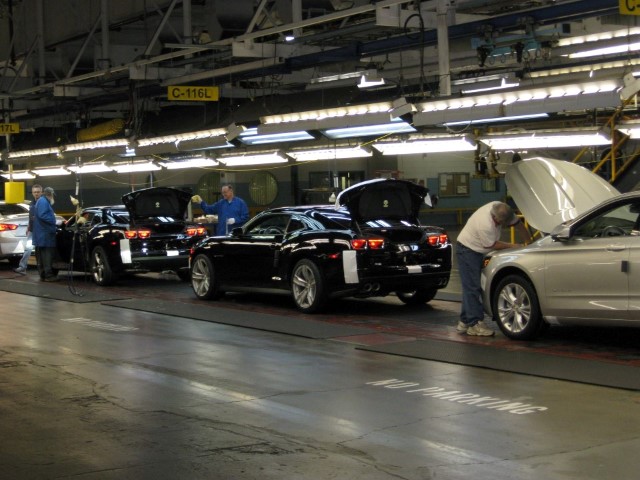A week of car recalls: a blessing or overcautiousness?
- Written by
- Published in News
- font size decrease font size increase font size
- Be the first to comment!
Over this past week, there has been plenty of recalls to go around. Most of us see the reports; glance at the headline or over the body of the article and move on with our day. Gone are the days when we get nervous over recalls and they become major headlines. Now they are a reported footnote for the public to know that these companies are doing the best to seek out these problems and find solutions for them.

The latest recalls mostly come from Japan, where Toyota Canada is recalling 56,211 Sienna minivans from 2004 to 2005, as well as from 2007 to 2009 because of a shift lever problem that could lead to your car rolling away. While, Nissan announced a global recall of 908,900 vehicles (Serena minivan, Infiniti M luxury, X-trail sport utility, and a few other models) due to defective accelerator sensors that could cause the engine to stall. Finally, Honda Canada are recalling 23,300 Honda Odysseys from 2003-2004, as well as 4,800 2003 Acura MDXs because of a possibility for an inadvertent airbag deployment.
German-based BMW recalled 134,100 5-series cars in the United States and an additional 5,800 in Canada to address faulty rear lights. The recall affects cars from model years 2008 to 2010.
Recalls were all the talk back in those dark days in late 2009 and early 2010. Toyota headlined the news when they announced recalls of approximately 5.2-million vehicles for a pedal entrapment/floor mat problem, followed by an additional 2.3-million vehicles for an accelerator pedal problem. Toyota totalled over 10 million vehicle recalls in 2010, but it wasn’t only them that dealt with this situation. Luckily, for the rest of manufacturers, they could hide behind Toyota while making recalls of their own. Honourary members to the over a million recall club in 2010 were General Motors, Honda, Nissan and Chrysler.
Toyota saw a major drop in sales and confidence in their brand, but they’ve been gradually forging forward except for a faulty power window switch hiccup in October of last year. In fairness to Toyota, they tackled the problem head-on and faced their accusations and apologized for their overambitious growth goals that played a factor in a slip in quality.

Toyota felt most of the burden from the 2009-10 recalls, but they helped change the way auto manufacturers attack problems. Recalls are now a good thing, because they show that manufacturers are no longer hiding from their mistakes, but attacking them head-on. Any report of a recall should show that the manufacturer has the customer’s back and they won’t allow any minor issue affect your driving safety. In the new recalls listed above, most of those issues have not affected any drivers on the road, which proves that these carmakers are taking no chances and being over-cautious with any possible situation that could arise.
It was only two decades ago, when Audi, who had a similar problem as Toyota with its Audi 5000. The Audi 5000 could shift into drive or reverse without having your foot on the brake, which in today’s world would cause a big scare. Audi decided to blame its own customers for the problem, rather than face a dreaded recall. Audi sales took a nose dive after that public relations nightmare, but eventually got them back.
The Audi story might be outdated and global communication has changed, but it’s important to give kudos to Toyota and the rest of the manufacturers for coming forward and dealing with their problems. Perhaps, they didn’t have a choice, but regardless the reasoning, it resulted in action being taken and recall not becoming an evil word that at all costs could not be uttered.
A recall doesn’t mean that the vehicle is inferior. Problems can arise and a lot of these recalls are minor in nature. It’s a cautious approach taken by all for the sake of transparency. And if it ends up being major, at least you’ll know about it. Personally, I rather know what’s wrong with my vehicle, rather than finding out after-the-fact.

